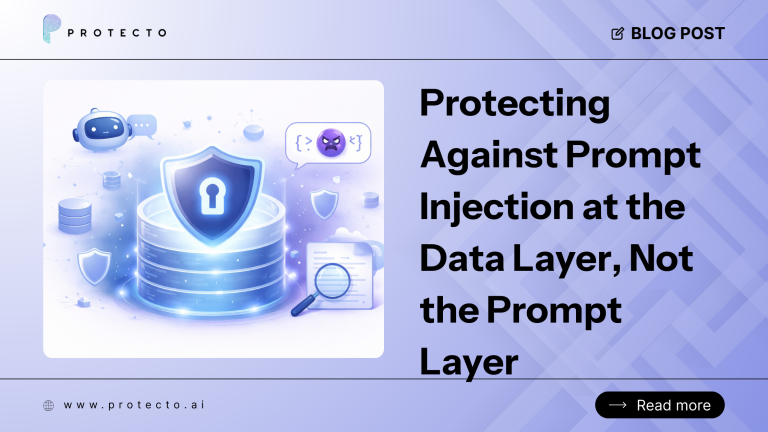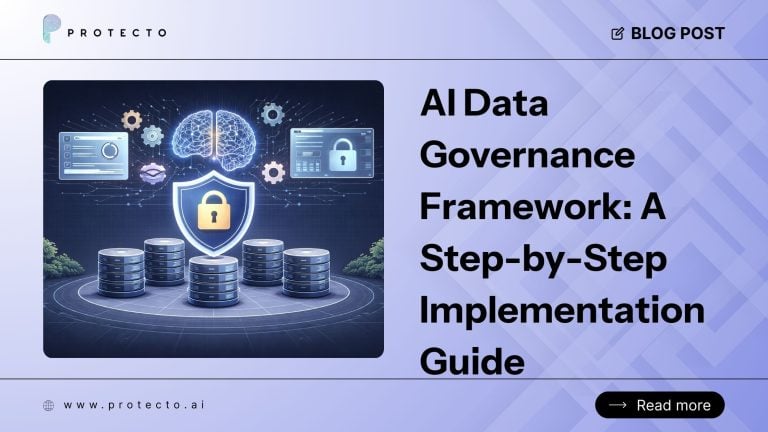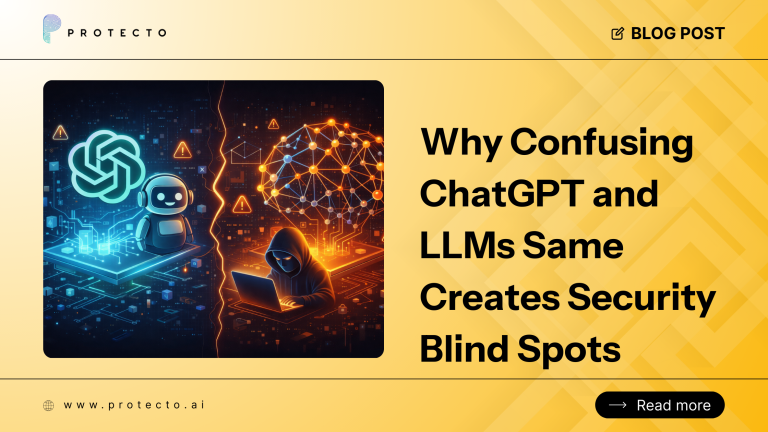In the age of artificial intelligence and machine learning, the utilization of vast amounts of data is crucial for training models and achieving accurate results. However, when dealing with sensitive information such as personally identifiable information (PII), privacy risks become a significant concern. To mitigate these risks and protect user privacy, it is essential to implement strategies that involve removing PII from the training data fed to the AI models.
In many cases, general AI models trained on public data may not adequately address the specific needs of enterprises. When organizations require AI models to answer company-specific questions, they need to provide the models with company-specific details. This process, known as finetuning or training the model, involves feeding proprietary data to public models to make them more tailored to the company’s requirements.
However, there are challenges associated with sharing data with public models. Companies may have contractual obligations or regulatory compliance requirements that prevent them from sharing data with external parties. Additionally, there is a risk of sensitive information leakage when data is exposed to public models. Simply applying general masking techniques to the data may not be sufficient as the models may not understand masked or obfuscated data.
Therefore, companies must find ways to strike a balance between leveraging AI models to enhance their operations and maintaining data privacy and compliance. They need to explore alternative approaches that allow them to train models on proprietary data while ensuring the protection of sensitive information. This may involve ‘treating the data’ before its fed to an AI model, by employing privacy-preserving algorithms like tokenization.
It is crucial to prioritize data privacy and security to build trust with customers and stakeholders and mitigate the risks associated with sharing sensitive data with public AI models. In this technical blog post, we will explore the importance of removing PII and discuss techniques to effectively anonymize AI training data.
The Importance of Removing PII from AI Training Data
PII includes data elements that can be used to identify an individual, such as names, addresses, social security numbers, financial information, and more. Here are some reasons why removing PII from AI training data is crucial:
1. Data Privacy Compliance
Numerous privacy regulations, such as the General Data Protection Regulation (GDPR) and the California Consumer Privacy Act (CCPA), require organizations to protect individuals’ privacy rights. Removing PII from AI training data ensures compliance with these regulations, minimizing the risk of unauthorized access or misuse of sensitive information.
2. Mitigating Data Breach Risks
Data breaches pose a significant threat to both organizations and individuals. By removing PII from AI training data, organizations reduce the likelihood of exposure to sensitive information in case of a breach. This helps safeguard personal data and maintains the trust of users and customers.
3. Preserving User Anonymity
Anonymity is a key aspect of privacy. When PII is removed from AI training data, the risk of re-identification or linkage with specific individuals is significantly reduced. This ensures that users’ identities remain protected, maintaining their privacy and avoiding potential biases or discrimination.
Interesting read: PII Compliance Checklist: Safeguard Your PII Data
Tokenization to the rescue
Tokenization is a masking technique that replaces sensitive data with unique identifiers or tokens. This approach ensures that PII is no longer present in the AI training data while maintaining its utility for model training.
Here’s how data tokenization helps in removing PII from AI training data:
- PII Replacement: Tokenization involves replacing sensitive information, such as names or email addresses, with unique tokens or placeholders. These tokens do not reveal any personal details and are randomly generated or assigned.
- Preserving Data Structure: Tokenization ensures that the overall structure and format of the data are maintained. This is important because it allows the model to learn patterns and relationships without relying on specific individuals’ personal information.
- Consistent Token Mapping: A mapping table is created to maintain the relationship between the original PII and the generated tokens. This mapping is used to reverse the process during inference if the data needs to be transformed back into its original form.
- Decoupling Personal Information: By tokenizing the data, the link between the PII and the training examples is severed. This decoupling strengthens privacy protections as it becomes significantly harder to trace back the tokens to their original PII.
- Enhanced Privacy: Tokenization helps to mitigate the risks of unauthorized access or data breaches. Even if someone gains access to the tokenized AI training data, the absence of actual PII reduces the potential harm and privacy violations.
Tokenization maintains the structure and statistical properties of the data while preserving anonymity. This approach reduces the risk of exposing personal details during data analysis and model training, thus safeguarding privacy and complying with data protection regulations. By leveraging tokenization, organizations can benefit from utilizing valuable datasets for machine learning without compromising individual privacy.
Also Read:“How Open-source AI is Driving Dramatic Increase in AI Adoption“
The Protecto Advantage
Protecto provides an intelligent tokenization solution that addresses the need to mask or pseudonymize sensitive information while ensuring that AI models can still understand and process the data effectively. By employing advanced tokenization techniques, Protecto aims to strike a balance between data utility and privacy protection, reducing both privacy risks and security risks.
Tokenization involves replacing sensitive data elements with unique identifiers or tokens, effectively removing the original sensitive information from the dataset. However, unlike traditional masking methods that render the data unreadable, Protecto’s intelligent tokenization ensures that the AI model can still comprehend and interpret the transformed data accurately.
By maintaining data utility, Protecto enables organizations to train AI models on sensitive information without compromising privacy or security. This approach is particularly valuable in scenarios where proprietary data must be used to fine-tune or train models, but regulatory compliance or contractual constraints prevent direct sharing of the original data with public models.
.png)
With Protecto’s intelligent tokenization, companies can adhere to compliance regulations and contractual obligations while harnessing the power of AI. By pseudonymizing sensitive data, the risk of exposing confidential information is significantly reduced, mitigating potential security breaches or unauthorized access.
It is crucial for organizations to prioritize privacy and security when working with sensitive data. Protecto’s intelligent tokenization provides a viable solution that allows AI models to operate effectively while safeguarding privacy and reducing security risks associated with handling sensitive information. By leveraging this technology, companies can enhance their data protection practices and maintain the trust of their customers and stakeholders.
Conclusion
Protecting user privacy is of utmost importance when working with ML / AI training data, especially when dealing with PII. By removing PII from training data, organizations can ensure compliance with privacy regulations, mitigate data breach risks, and preserve user anonymity. Tokenization helps pseudonymize AI training data while maintaining the data’s utility for model development. By prioritizing privacy in AI/ML workflows, organizations can build trust with users and foster responsible and ethical data practices.
Sign up for a free trial or schedule a demo today to learn more.
Frequently asked questions
What is AI training data?
Training data is a massive dataset that is used to train machine learning models. AI training data is used to teach AI / ML models to extract features from the data that are relevant to the specific business goal.
Why should AI training data be secured?
Data breaches or misuse of PII is a serious threat in the context of AI training data, because the integrity of the data fed into AI / ML models is very crucial. Sensitive information could be leaked or misused, hence it is very important that PII data is either masked or tokenized before using the same in these models.
What is Tokenization of PII data?
Within the domain of data security, the concept of “tokenization” involves the substitution of sensitive or regulated data, such as personally identifiable information (PII), with non-sensitive equivalents known as tokens. These tokens hold no intrinsic value and can be mapped back to the original sensitive data by utilizing an external data tokenization system.
What is the purpose of Data Tokenization?
Tokenization serves the purpose of safeguarding sensitive data while maintaining its business functionality, distinguishing it from encryption methods that alter and store sensitive data in ways that hinder its ongoing business usability.
Why is Tokenization more secure?
Tokenization offers enhanced security due to its unique approach. Unlike encryption, which utilizes keys to modify the original data, tokenization completely removes the data from internal systems and replaces it with a randomly generated token that holds no sensitive information. This eliminates the risk of data theft since the tokens do not provide any means to retrieve the original data.




